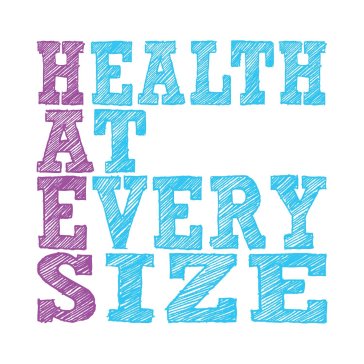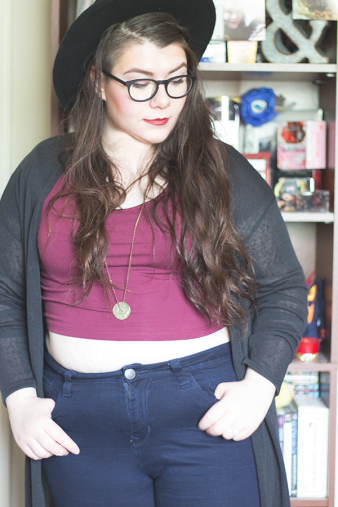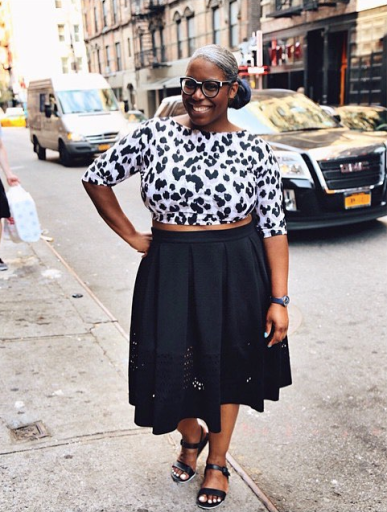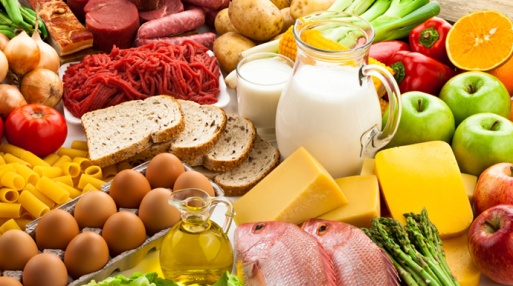
Health at Every Size and the Fat Acceptance Movement started as small, barely recognised movements. Due to the hard work of those involved and the (very) gradual shift in views around weight, shape, and size, these movements are now beginning to get the acknowledgement and publicity that they deserve. The more exposure these movements get, the more people will start to be enlightened to the real facts, figures, and evidence around size, health, and weight set point theory. Hopefully with time weight-based myths, discrimination, and stigma will be something that we as a society look back on and cringe with shock and humiliation that we got something so wrong and treated millions of people so badly. However, we still have a really long way to go until then.
You might be new to these movements, or you might not be, but either way, you may be unsure about what they stand for and why these things are so important. So let’s have a look at each movement and discuss a little bit about them.
Health At Every Size (or HAES) was first developed by American psychotherapist and nutritionist Linda Bacon, who wrote the book Health at Every Size (first published in 2008), and the sequel, Body Respect. Health At Every Size is a movement that is promoted by those who believe that health and fitness can be achieved regardless of weight, shape, and size, and that weight-loss is not a requirement for those deemed “overweight” or “obese” by BMI in order to live a healthy and happy life. HAES encourages people to accept their weight as it is, and promotes mental and physical well-being without weight loss as a goal. HAES cites studies that have shown that weight loss often leads to worse health regardless of the starting weight, and presents evidence that suggests that obesity is not the cause of health issues or premature mortality. It provides strong arguments for the idea that correlation does not equal causation, and picks apart flaws in studies that apparently connect obesity to poor health. HAES supports self love, self care, and body positivity, as well as healthy physical lifestyle choices such as being active and eating a balanced diet. HAES promotes this in a way that is conductive to mental health: it urges people to engage in activity that is enjoyable first and foremost, and not gruelling and repetitive work-out routines, and it supports the idea that food is not just for survival but also for pleasure. It maintains that weight loss should never be a goal, and that weight loss is frequently damaging, and encourages people to follow intuitive and instinctive eating and activity. It also supports weight set point theory.
The Health At Every Size® Principles are:
- Weight Inclusivity: Accept and respect the inherent diversity of body shapes and sizes and reject the idealizing or pathologizing of specific weights.
- Health Enhancement: Support health policies that improve and equalize access to information and services, and personal practices that improve human well-being, including attention to individual physical, economic, social, spiritual, emotional, and other needs.
- Respectful Care: Acknowledge our biases, and work to end weight discrimination, weight stigma, and weight bias. Provide information and services from an understanding that socio-economic status, race, gender, sexual orientation, age, and other identities impact weight stigma, and support environments that address these inequities.
- Eating for Well-being: Promote flexible, individualized eating based on hunger, satiety, nutritional needs, and pleasure, rather than any externally regulated eating plan focused on weight control.
- Life-Enhancing Movement: Support physical activities that allow people of all sizes, abilities, and interests to engage in enjoyable movement, to the degree that they choose.
Health At Every Size is a movement that I strongly agree with. Its main principles on exercise, food, weight, and body positivity are ones that I advocate with every fibre of my being. It’s incredibly important because we live in a culture obsessed with dieting and weight loss; a culture preoccupied with attaining the “perfect body – a body that is not achievable for the majority of people without sacrificing their mental and/or physical health. Even if you are someone who naturally has society’s idea of the “perfect” body, the dieting and weight loss industry will find ways to make you feel inadequate and flaw-ridden in a bid for you to buy their products to “fix” yourself with. The diet and weight loss industry controls much of our research into food and weight, and sweeps any evidence that contradicts their interests under the rug and publicises in a selective and biased way research that has questionable study methods or sample sizes, contentious results, and tenuous correlations. So do I have any criticism of the HAES movement?
Firstly, I think that although HAES is absolutely correct in that we should intuitively eat and listen to hunger and fullness cues, it underestimates how difficult that can be to relearn, especially if you are someone who has suffered with an eating disorder or severe dieting. In our society, feelings of guilt, self-loathing, shame, anxiety, and, on the other hand, superiority and control, have become inextricably linked with food and weight, and so it can be incredibly difficult (and perhaps even impossible) to entirely disentangle our emotions from our biological signals. That’s not to say that it cannot be done, but we need to address the context in which we live in our bodies before we can start to challenge and relearn the way that we feed and view our bodies. Being presented with the principles of the Health At Every Size movement can feel like ordering flat-pack furniture and taking it home, only to open it up, lay out the pieces of the floor, and realise that the instructions aren’t there. You’re left with all the parts, but with no idea how to assemble it. And in reality that’s not exactly a flaw of the HAES movement itself, as HAES aims to educate and promote a mentally and physically healthy and positive way of living, but it is an area it sometimes fails to recognise and address.
Secondly, I’m not really a fan of the name. Heath At Every Size is misleading. Although I absolutely 110% agree that the what we view as “healthy” should be a much much much broader range of weights, it is undeniable that there are certain weights at which you just cannot be healthy at. You cannot be a healthy adult at 50lbs, just like you cannot be a healthy adult at 500lbs, and so the name of the movement leaves it open to criticism from the onset. Prader-Willi syndrome, hypothyroidism, cancer, depression, anxiety, or eating disorders are a few examples which can cause a person’s weight to plummet or skyrocket, and there are weights that are too low or too high for anyone to be healthy at. So for me, I believe in Health At (Pretty Much) Every Size, and whilst Health At Every Size is much more catchy, it’s technically incorrect, allowing those against the movement an easy starting point on which to discredit it.
Last but not least, HAES aims to provide people with the information to start working towards accepting their bodies whatever their weight, shape, and size in order to improve both physical and mental health. However, it also has to be addressed that we live in a society where fat people are constantly subjected to prejudice, body-shaming, weight stigma, and discrimination. Fat people who agree with HAES may still struggle to accept their body size in a culture so cruel to them, and their inability to find peace with their bodies may well become yet another source of shame. Again, this isn’t a flaw in the principles of HAES, but a topic that may need more recognition.
So what is the difference between Health At Every Size and the Fat Acceptance Movement? Let’s take a look at the latter:

The Fat Acceptance movement (also known as the size acceptance, fat liberation, fat activism, fativism, or fat power movement) is a social movement seeking to change anti-fat bias in social attitudes. Those involved seek to change attitudes towards fat people in areas of life including the aesthetic, legal, and medical approaches to people whose bodies are fatter than the social norm. The Fat Acceptance movement focuses more on the way fat people are perceived and judged due to their weight, shape, or size, and although it does address physical health and the research to back up the same principles as the Health At Every Size movement, it is more focused around changing the way fat people are treated and discriminated against. Fat people are often dehumanised and shown far less respect than those that are at a socially “acceptable” weight. One of the main examples is medical care. Fat people’s medical issues are often inaccurately dismissed as being caused by their weight, are shown less respect, and are often shamed for their body size.
The Big Is Beautiful movement is a smaller movement that comes under the Fat Acceptance movement, and focuses more on aesthetics. Its message is that people whose bodies are bigger than what is considered socially “acceptable” are beautiful too, and that you don’t have to be a certain weight, shape, or size to be attractive. Its aim is to help people find beauty in their bodies regardless of any contributing factors that make them look a certain way: health is besides the point.

Both movements are focused around respect, and also talk about health as irrelevant. The ideas is that even if you believe that someone IS unhealthy due to their weight, its not your business what lifestyle choices they make, and they should be treated with respect regardless of those choices. For example, we all know people who smoke or binge drink, but we do not treat them as less human on an everyday basis because those choices lead to poor health. We do not assume their personality, or directly link their personal lifestyle choices with their moral character. This is why these movements are so important: they address the way society perceives and treats people who are fat.
My only criticism of these two movements (Fat Acceptance and Big Is Beautiful) is that there are some people involved in this movement who look down on those who diet as betrayers of the movement, when they should be seen as victims of a diet and weight loss obsessed society. As I stated above with HAES, it can be forgotten how powerful and pervasive “thin ideals” are, and all of us are affected by it in some way, even if we do constantly work to disentangle ourselves from it and rise above it. We should all be working together to support one another and help to lift each other up not put anyone down. We should aim to educate, not shun; support, not vilify.
Health At Every Size, the Fat Acceptance movement, and Big Is Beautiful, are all extremely important in terms of physical health, mental health, feminism, and education around food, weight, and health, amongst other things. They are powerful and uplifting; inspiring and motivational; enlightening and passionate. They can give us the information and confidence to live in a better way; a way that makes the aspirations of health and happiness more achievable.
To find out more about weight set point theory, and to read discussions around and evidence to support Health At Every Size, you can visit the resources section on this website. There is a drop-down menu that displays many sub-sections, including one for each of these topics.
And as a last little titbit of information, check the photo out below:






















